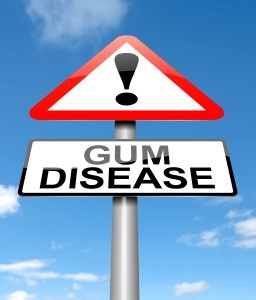Reduce the Risk of Gum Disease with Wisdom Tooth Removal


The emergence and retention of wisdom teeth is problematic to gum health for a few reasons. First, it is important to know that wisdom teeth are actually a third set of molars. This third set of molars came in handy for our ancestors, many of whom lost their first and second molars before adulthood. Wisdom teeth are no longer biologically necessary; so having a wisdom tooth extraction will not negatively affect oral function.
Reasons to Remove Wisdom Teeth
Since modern humans keep their second molars much longer than their ancestors, there is rarely enough room in the mouth for wisdom teeth to come through the gums in healthy positions. Instead, due to the crowded situation, they partially erupt – leaving some of the tooth exposed and the rest concealed by the gingiva.
Partial tooth eruption means that debris and bacteria can easily collect beneath the exposed portion of a tooth and the gingiva. With no way to dislodge trapped debris, the gums can become easily infected. Moreover, the location of wisdom teeth at the very back of the mouth makes keeping the gums and exposed portions of teeth clean.
Gum Disease and Your Oral Health
Periodontal disease is a major threat to oral health and quality of life – especially when this condition is not treated quickly. Gum disease, when left undiagnosed and untreated, can quickly progress into a systemic health condition that can destroy the gums, teeth, and bone. Since gum disease is a leading cause of tooth loss, it is important that patients of all ages practice proper oral hygiene and receive routine professional care.
Our team offers gentle wisdom tooth extraction. We utilize advanced surgical techniques to reduce invasiveness and promote expedient recoveries. Call Bliss Dental today to reserve an appointment.